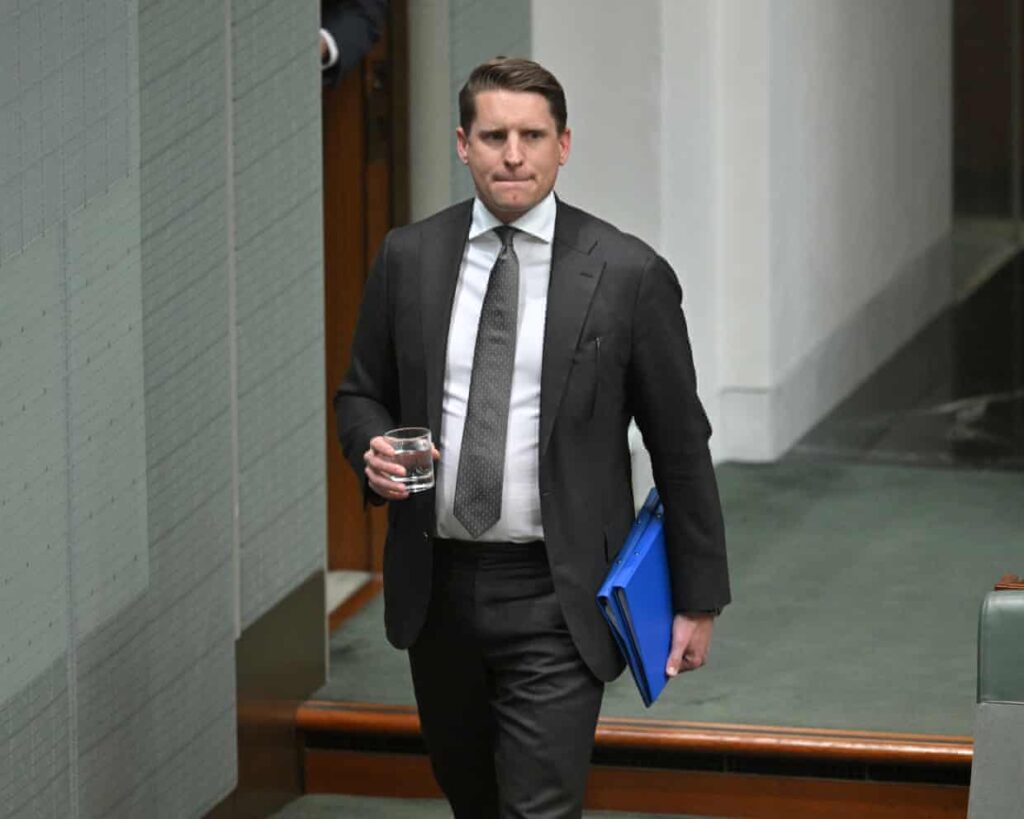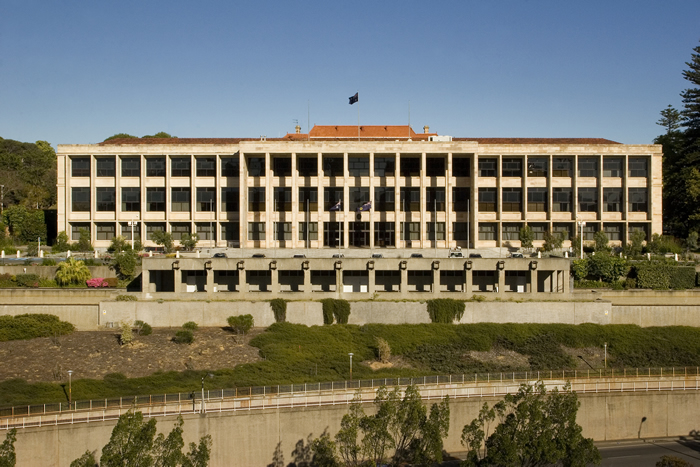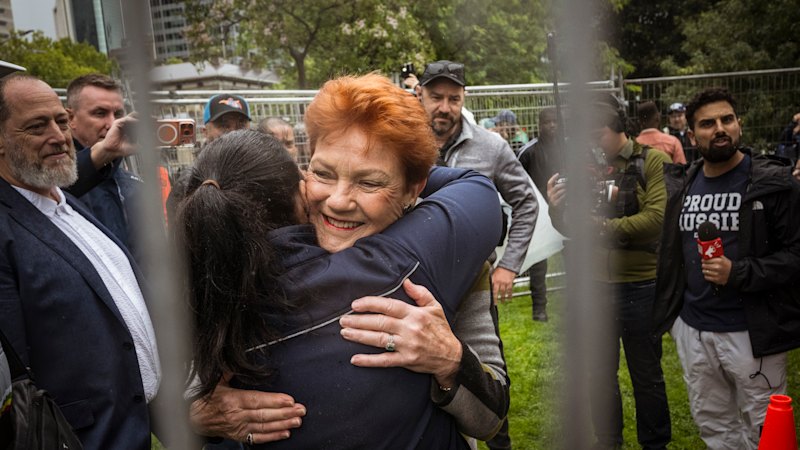
Andrew Hastie, the shadow home affairs minister and member of parliament for Canning, has declared that he will resign from the Coalition’s shadow frontbench if the Liberal Party continues to uphold its commitment to a net zero emissions target by 2050. His comments indicate escalating tensions within the party as opposition leader Sussan Ley seeks to stabilize a fractious political environment.
Speaking on ABC Radio Perth on Monday, Hastie characterized the Albanese government’s emissions target—aiming to reduce emissions to net zero based on 2005 levels by 2050—as motivated by “climate alarmism.” His statement follows the recent dismissal of Jacinta Nampijinpa Price from the shadow ministry, which further exemplifies the internal strife within the Coalition.
Hastie is part of a growing faction of Coalition MPs who are openly critical of the net zero policy. He has previously labeled the government’s commitment to cleaner energy as “moral hypocrisy” and described it as a “scam.” When asked about the implications of the Liberal Party maintaining its current stance after a review of its policies, he remarked that such a decision would leave him “without a job.”
“My primary mission in politics is to build a stronger, more secure, more competitive Australia,” Hastie stated. “Energy security is a vital input to that.” His candid remarks underscore a shift in priorities among some Conservative lawmakers who are increasingly questioning established climate policies.
The Liberal Party is currently undergoing a comprehensive review of its policies following a significant electoral defeat in May 2022. Among these, climate and energy policies are proving to be particularly contentious. Hastie noted that he has not yet discussed his position directly with Sussan Ley, although he acknowledged that “everyone is whispering” about the issue.
In a previous appearance on the program “Four Corners,” Hastie expressed strong opposition to the net zero policy, calling it a “straitjacket for our economy and our country.” His comments coincided with the release of the national climate risk assessment, which highlighted the severe social and economic impacts of climate change on Australia. The assessment modeled potential outcomes under various global heating scenarios, revealing alarming projections, including a potential 444% increase in heat-related deaths in Sydney under a scenario of 3 degrees Celsius of warming.
Additionally, on Sunday, the Victorian division of the Liberal Party voted to abandon Australia’s net zero targets, joining a growing list of state factions, including those in South Australia and Western Australia, that oppose the emissions reduction policy. This dissent reflects a broader backlash within the party against the targets established by the former Morrison government, which had brokered a deal with the junior Coalition party in 2021 to support net zero by 2050.
As the Albanese government prepares to announce its 2035 emissions target ahead of the UN climate change conference in November 2023, the future of Australia’s climate policy remains uncertain. The government has already set a legally binding target to reduce emissions by 43% compared to 2005 levels by 2030, which is part of its overall strategy to achieve net zero by 2050.
With internal divisions growing, the Coalition faces a critical juncture as it navigates the complexities of climate policy and its implications for the party’s future.






